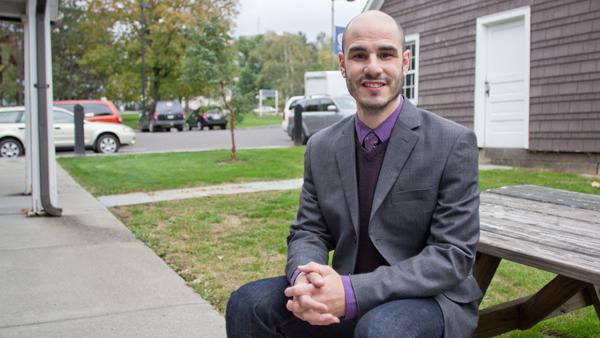In an effort to raise money for Ithaca College’s Annual Fund, and to implement the college’s IC 20/20 strategic plan, the Office of Institutional Advancement is reorganizing and realigning programs and staff this year.
Chris Biehn, vice president of institutional advancement, said the board of trustees is preparing to announce an exact launch date and fundraising goal for the campaign.
“We’re evaluating the start date for a comprehensive campaign, which includes all the IC 20/20 priorities, and what that encompasses is funds for endowment, current operating [costs], some capital projects and the Ithaca College Annual Fund,” he said. “They’ll all be included in the campaign when it’s launched.”
Three new directors in institutional advancement are at the center of the realigning of the office. Rob de la Fuente joined the college as the director of the newly renamed Ithaca College Annual Fund, Craig Evans ’84 serves as the new director of gift planning and Greg Kimbell is the new director of advancement.
Biehn said the college’s fundraising and alumni advancement functions are now within one department.
“The next step is creating the multi-year plan that will delineate what are the key goals that we need to accomplish each year in order, by 2020, to have a more comprehensive and stimulating program of alumni, students and parent engagement, and therefore a more successful fundraising program,” Biehn said.
De la Fuente, director of the Ithaca College Annual Fund, joined institutional advancement in July. He replaced former Director David Wilkins, who died in a car accident in January. Prior to beginning his new position at the college, de la Fuente worked in the Division of Alumni Affairs and the Office of Volunteer
Programs at Cornell University.
This year, de la Fuente said, the Annual Fund will target young alumni who have graduated 10 or fewer years ago through its new program, Young Alumni Challenge. Their goal is for at least 1,000 young alumni to donate to the college , which would be an increase of 11 percent from the previous year. De la Fuente said institutional advancement hopes 38 percent of the senior class — the largest in college history — will donate to the Senior Class Gift, which is part of the Annual Fund.
De la Fuente also said the Annual Fund is reevaluating how it approaches parents, alumni and other donors.
“[We want to] make sure that we’re talking to you at the right time,” he said. “If you’ve given a gift for the past 10 years, we’re going to try to acknowledge that in how we appeal to you.”
Through the Annual Fund, Biehn said, Institutional advancement hopes donors will give to the college as a whole, as opposed to specific departments or programs.
“We are encouraging people to think more broadly about the college and to look at the plan as a way to connect the schools,” he said.
Evans previously worked as the development director for Syracuse University’s Office of Gift Planning.
Biehn said the college also wants to grow its endowment, which stands at about $200 million.
“The larger the endowment, the more can come from that endowment,” he said. “We’re able to offer both scholarships and other financial awards to students. It also helps us maintain a competitive position in terms of faculty salaries.”
Before joining the college in July as the director of advancement, Kimbell held several positions at the Division of Alumni Affairs and Development at Cornell University.
The director of advancement maintains records on alumni and encourages them to get involved as admissions volunteers and speakers at college events. Though Kimbell said his department is not making too many changes related to IC 20/20, his division is looking into better methods to track and record alumni information.
Biehn said institutional advancement also plans to develop an alumni-student mentoring program, which will be launched next semester.
“Students are paired with alumni to help them not only make decisions about planning their academic career and getting ready for their career following graduation, but also to help them with personal choices that they may want to make and learning more about what the specific alumnus did while he or she was in college that positioned them for success in the world,” he said.









